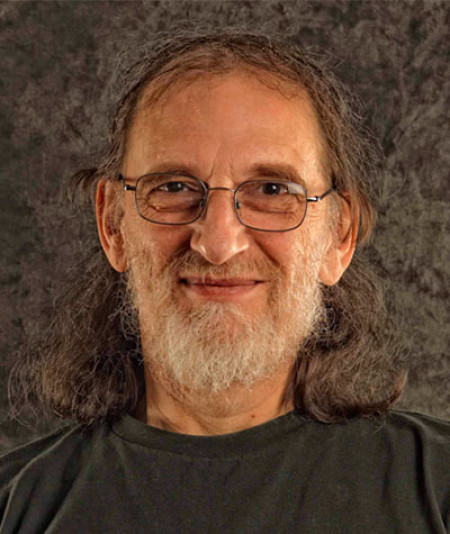2003: Paddy Lad, "Deafhood"
Dr. Paddy Ladd is a Deaf scholar, author, activist and researcher of Deaf culture. His book "Understanding Deaf Culture: In Search of Deafhood" was published in 2003.
"This text presents a Traveller's Guide to deaf culture, starting from the premise that deaf cultures have an important contribution to make to other academic disciplines, and human lives in general. Within and outside deaf communities, there is a need for an account of the new concept of deaf culture, which enables readers to assess its place alongside work on other minority cultures and multilingual discourses.
The book aims to assess the concepts of culture, on their own terms and in their many guises and to apply these to deaf communities. The author illustrates the pitfalls which have been created for those communities by the medical concept of deafness and contrasts this with his new concept of deafhood, a process by which every deaf child, family and adult implicitly explains their existance in the world to themselves and each other."
https://books.google.nl/books/about/Understanding_Deaf_Culture.html?id=Pr649oNCaSMC&redir_esc=y
DEAFHOOD is described as a journey that each Deaf person undertakes to discover his/her identity and purpose in this life as a Deaf person among other people.
It is a positive approach to re-affirming Deaf people’s role and place in society, history and the world.
Deafhood also focuses on the historical, cultural and linguistic reality of Deaf people, and maintains a larger worldview as opposed to minimizing the community into miserable (or glorified) individuals who seek access solely through hearing. (http://deafhood.org).
"For Paddy Ladd - writer, academic and activist - school was a desperate strain. As one of the first deaf children in mainstream education, he was not taught to sign but forced to use his eyes and wits to work out what was going on. He recalls: "I was told: 'You're not a deaf child - you're just a hearing child who can't hear'."
The edict devastated his self-image. When he struggled to cope, he reasoned that he must be stupid. He withdrew from the world and buried himself in books. "I lived in a state of numbness with no thoughts as to what I could become," he says.
What Ladd became was a pioneer. He initiated deaf television programming in Britain in the 1980s; worked as the first deaf presenter of BBC television's See Hear!; created the world's first sign language pop video and devised the first masters course in deaf culture. He signed songs at Bob Dylan and Grateful Dead concerts in the US, learning the words by heart and being cued when each line started.
Ladd the activist has tirelessly rallied against "oralist" policies and attitudes that, he argues, prevent deaf children and their parents from learning or using sign language to communicate.
His latest book, Understanding Deaf Culture presents a scholarly case for why deaf people are a linguistic minority, rather than a group of people needing to be "cured". Drawing on examples from philosophy, visual art and literature spanning the history of western civilisation, he argues that oralism is relatively recent and that sign language was once greatly respected - even revered - by deaf and hearing people.
The edict devastated his self-image. When he struggled to cope, he reasoned that he must be stupid. He withdrew from the world and buried himself in books. "I lived in a state of numbness with no thoughts as to what I could become," he says.
What Ladd became was a pioneer. He initiated deaf television programming in Britain in the 1980s; worked as the first deaf presenter of BBC television's See Hear!; created the world's first sign language pop video and devised the first masters course in deaf culture. He signed songs at Bob Dylan and Grateful Dead concerts in the US, learning the words by heart and being cued when each line started.
continue reading: https://www.theguardian.com/society/2003/mar/19/guardiansocietysupplement5
Source: https://en.wikipedia.org/wiki/Paddy_Ladd

